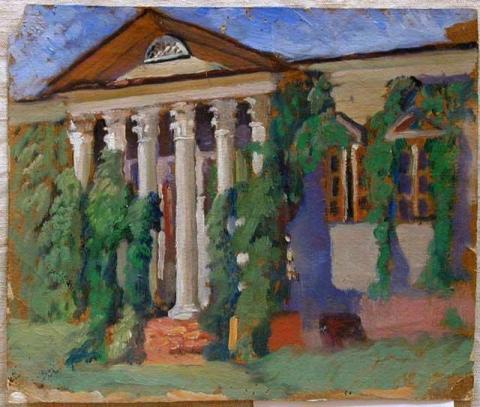
Bogdanova O.A. Transformacija «vlasteoskog imanja» u ruskoj književnosti od 1910-ih do 1920-ih godina // [Sic]. Future Insights. No. 2 - Year 9. 06/2019 - PUB.4. Pp. 1-16. (In Croatian). (Web of Science, РИНЦ)
The idea of the landlord's estate as “paradise on land,” traditional in the Russian culture of the late 19th and early 20th century, evolved in the literature of the 1910s and 1920s into the idea of the city-garden, which united the “beginning” and “ends” of the image of Biblical paradise – the Old Testament Eden and the Apocalyptic New Jerusalem. The substrate of the city-garden mythologem became the "estate topos," which indicates its plasticity and significant heuristic potential, i.e. not only its belonging to the former landowner estate of the 19th century, but also its ability to create new cultural modifications, such as the “city of the future” by V. V. Khlebnikov or the “city garden” in the prose of A. N. Tolstoy and in the Soviet poetry of the 1920s.
Идея помещичьего имения как “рая на земле”, традиционная в русской культуре конца 19-го и начала 20 – го века, эволюционировала в литературе 1910-х и 1920-х годов в идею города-сада, объединившего “начало” и “конец” образа библейского рая-ветхозаветного Эдема и апокалиптического Нового Иерусалима. Субстратом мифологемы города-сада стал "усадебный топос", что свидетельствует о его пластичности и значительном эвристическом потенциале, т. е. не только его принадлежности к бывшей помещичьей усадьбе 19 века, но и его способности создавать новые культурные модификации, такие как “город будущего" В. В. Хлебникова или "город-сад” в прозе А. Н. Толстого и в советской поэзии 1920-х годов.
